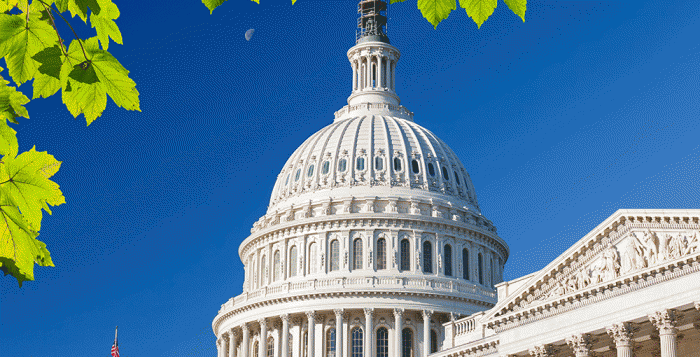Jack Phillips
Effects of Late State Budget Non-Profit Survey Results
In conjunction with the United Way, RCPA forwarded its members a survey regarding how a late state budget was affecting their businesses. United Way did a summary of the survey results, and a quick snapshot of the findings reveal:
- 152 organizations report staff impacts – layoffs, hour reduced, benefits reduced, etc.
– 45 individuals have been laid off or furloughed from F/T employment
– 50 individuals have been laid off or furloughed from P/T employment
– 522 employees had hours reduced
– 73 people are working without pay
– 510 people lost access to employee benefits
- 70 percent of the respondents have between $20,000 and $250,000 per organization that is delayed as a result of the impasse. 19 responded that they are owed more than $1 million each.
- 64 organizations estimated their interest costs through October. They responded in categories; the chart is included in the findings summary linked above. Another 19 shared interest amounts in the comments section that were lower than the base threshold.
- Only 24 percent believe they are eligible for the interest payment relief proposed by the administration.
- A high number of respondents (42%) are not able to access additional lines of credit at this time.
RCPA encourages members to use the survey summary results to contact the governor and your state legislators to inform them why it’s absolutely necessary for them to pass a state budget sooner rather than later. Please contact Jack Phillips with any questions.
Stopgap Funding
Last week, the State Senate passed two funding bills, SB1000 and SB1001, on party-line votes. These bills would authorize short-term funding for health and human service providers as well as education. The funding would be retroactive to July 1, the start of the current 2015/16 Fiscal Year, and would last until the end of October, 2015
After passing the Senate chamber, the two short-term budget bills were sent to the House. The bills are scheduled for final passage on Thursday, September 24, and then they will be sent to the governor for his signature.
According to the governor and Democrat leadership, the stopgap budget bills do not solve the problem. Democrats argue that the budget passed by Republicans in June was ineffective and the governor had every right to veto it. Furthermore, they assert that passing short-term funding bills based upon the vetoed budget is unwise, when the governor has proposed something comprehensive and even better. Democrats also contend that an approved stopgap would make it less likely for negotiations with Wolf, who has said he will veto the stopgap, to produce a full budget.
Republicans maintain that passing temporary funding for schools and human service agencies makes sense and negotiations would not stop just because stopgap funding was approved. Republicans are asking why those who need state dollars should be forced to wait for at least some funding while the Republicans and the governor work on a permanent budget.
RCPA has been, and continues to be, concerned about the effects of a late state budget on health and human service providers. The state budget stalemate between the General Assembly and Governor Wolf is having real and lasting effects on these providers and the people they serve across the Commonwealth.
RCPA supports the stopgap funding. The association has been in contact with the General Assembly and the governor’s office, encouraging them to pass and sign the stopgap funding bills into law, so health and human service providers can continue services to the most vulnerable individuals throughout Pennsylvania.
In anticipation of both bills’ final passage in the House, RCPA is strongly encouraging members to contact the governor today, to encourage him to sign the stopgap bills, as was done by Governor Rendell in 2003 and 2009, until a compromise can be reached on a permanent spending plan for FY 2015/16.
RCPA Govt Affairs Director Jack Phillips Quoted in Lancaster Newspaper
RCPA Govt Affairs Director Jack Phillips is quoted in this article on the Stopgap Budget for Pennsylvania.
Stop-Gap Budget Spreadsheet
The Senate GOP Stop-Gap General Fund Budget Spreadsheet is available here. This information will also be announced to members via the Weekly Digest.
RCPA Comments on DOL Proposed Overtime Rule
RCPA submitted comments to the Department of Labor; Division of Regulations, Legislation, and Interpretation; Wage and Hour Division, on the Proposed Rule Defining and Delimiting the Exemptions for Executive, Administrative, Professional, Outside Sales, and Computer Employees published in the Federal Register on July 6, 2015.
Act 62 Amendment to Expand Access to Services
Act 62 of 2008 created the license requirement for behavior specialists; however, in recent years, a significant issue has arisen due to the narrow licensure requirement for behavior specialists specified. This has jeopardized access to early intervention services for many children with autism. For the past several months, RCPA government affairs and policy staff, along with RCPA members in southwestern Pennsylvania, have been working with Representative Dan Miller (D-Allegheny) to draft an amendment to address this concern.
Under Act 62, a behavior specialist must obtain 1,000 hours of direct clinical experience with individuals with behavioral challenges to apply for the licensure. Degree-granting programs generally do not include this level of direct clinical experience in their coursework or internships. Thus, graduates must either plan employment throughout their coursework or take lower paying jobs post-graduation.
Representative Miller’s proposed amendment will:
- Allow licensed behavior specialists to supervise non-licensed, graduate-level clinicians providing autism services while they obtain the 1,000 required hours of clinical experience to apply for licensure.
- Establish a temporary practice license that could be granted to the graduate-level clinician as they obtain their service hours under the supervision of allow licensed behavior specialists, licensed physicians, and licensed psychologists.
- Amend the educational requirements of a behavior specialist to recognize those individuals who are Board Certified Behavioral Analysts.
RCPA is strongly encouraging members to contact their local Representative and encourage her or him to sign onto the co-sponsorship memo, Protect Access to Autism Services-Behavioral Specialist Consultant Licensure, in support of the creation of a temporary behavior specialist license.
SB487 – “Fairness in Multiple Copayments Act” – on way to Governor
Today, SB487 passed by a 46-0 concurrence vote in the Senate, which means it will be sent to the governor for his signature. The governor has ten days to sign the bill, and it is anticipated that he will sign it into law.
SB487 is legislation that would prohibit multiple copayments for licensed physical and occupational therapy services covered under an insured person’s health benefit plan. RCPA, along with many of its medical rehabilitation members, met with various legislators and leadership, expressing support for this very important piece of legislation. Without the legislation, patients were required to pay multiple insurance copayments, which sometimes limited or even prevented them from receiving the amount of care that they absolutely required. SB487 does not eliminate copayments; it simply prohibits burdening patients who require different and specific therapy services with copayments for each and every session.
RCPA thanks its members for all their grassroots efforts, and applauds the General Assembly for passing this common sense legislation, to help ensure that Pennsylvanians who require medical rehabilitation can access the types and amount of care they need in order to get back to their day-to-day routines.
Contact Jack Phillips, RCPA director of government affairs, with questions.
Update on the State Budget as of July 8
Discussions between House and Senate leadership and the governor continue; the two sides have not yet reached an agreement on a new budget proposal. The governor has proposed raising the state’s 6 percent sales tax to 6.6 percent – a 10 percent increase – and the personal income tax from 3.07 percent to 3.7 percent – a 20 percent increase – to raise about $4 billion. (Philadelphia’s 8 percent sales tax would remain unchanged.) Much of the money raised in the governor’s proposal would go toward funding the governor’s proposed property tax-relief plan, worth $3.8 billion, for all 500 school districts in Pennsylvania. The governor has also proposed a new 5 percent tax on natural gas drillers, plus a per-cubic-foot fee on gas, which together would raise roughly $1 billion for public education.
Republican leadership are open to raising new revenue, but are not supporting the governor’s plan to raise the state’s personal income and sales taxes. Yesterday, the state senate announced session days for Monday, Tuesday, and Wednesday next week. If no budget agreement is reached, it is unclear what actions the state senate will take while they are in session.
In the meantime, we ask you, your employees, and the families that you serve, to continue to contact your legislators and the governor, to tell them know it is imperative to fully fund human service programs in a timely fashion, and if they do not, how it will affect your business and the services you provide to the most vulnerable residents of the Commonwealth. When communicating with elected officials, please use the RCPA policy papers regarding RCPA budget priorities and the effects of a late state budget. Additionally, we encourage our members to send in letters to the editor.
Contact Jack Phillips, RCPA Director of Government Affairs with any questions.
Saga of the State Budget
As most, if not all of you are aware, the General Assembly passed an on time version of their state budget yesterday, and it was quickly vetoed by the governor.
The Republicans in the House and Senate were able to pass the general appropriations bill and the accompanying code bills necessary. The House and Senate also made history by passing a bill which will privatize the state liquor store system, and being able to pass a pension reform bill. They used the privatization and pension reform bills, as well as one-time fixes, to provide the necessary revenue for their budget. The governor vetoed the general appropriations bills and the code bills, and he is determining whether he will sign or veto the privatization and pension bills.
In his press conference last night, the governor conveyed his belief that the Republicans used shoddy math and smoke and mirrors to pass a balanced budget. He also believes that the general appropriations bill that was sent to him did not include enough funding for education; therefore the Governor used his veto power.
So, where does that leave providers? It leaves a lot of providers in the unenviable position of trying to plan their budgets without the certainty of when state funding will be forthcoming, or how much state funding will be available for programs. Please see Budget FAQs for further information on how the budget impasse will affect providers.
The governor has asked Republican and Democrat leadership to sit down with him at the negotiation table, starting today, to find common ground on education funding, an extraction tax, property tax reform, and other revenue enhancement proposals. During this negotiation process, between the Governor and the four leadership caucuses, RCPA will continue to meet with elected officials to advocate for additional human service funding.
RCPA will continue to update the membership regarding the ongoing budget negotiations. We ask you, your employees, and the families that you serve, to contact your legislators and the governor to tell them why it is imperative to fully fund human service programs in a timely fashion, and if they do not, how it will affect your business and the services you provide to the most vulnerable residents of the Commonwealth. When communicating with elected officials, please use the RCPA policy papers regarding RCPA budget priorities and the effects of a late state budget.
Additionally, we encourage our members to send in letters to the editor; feel free to use this as a template for one of your own. Contact Jack Phillips, RCPA director of government affairs, with questions.












